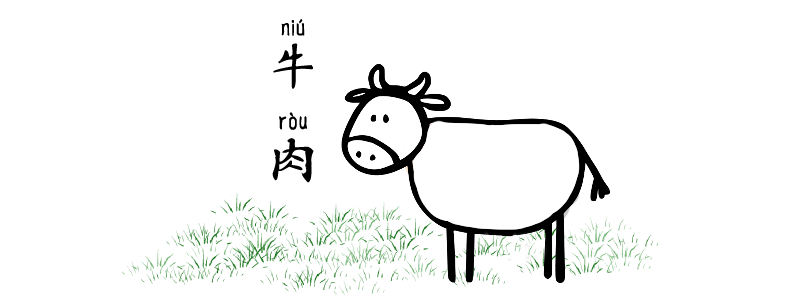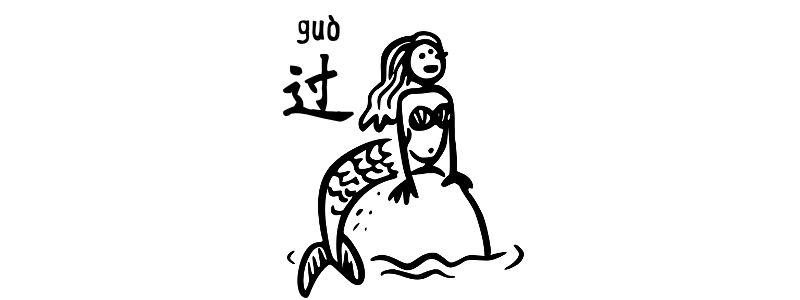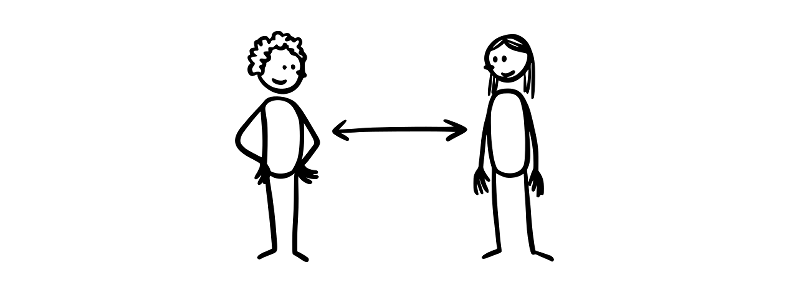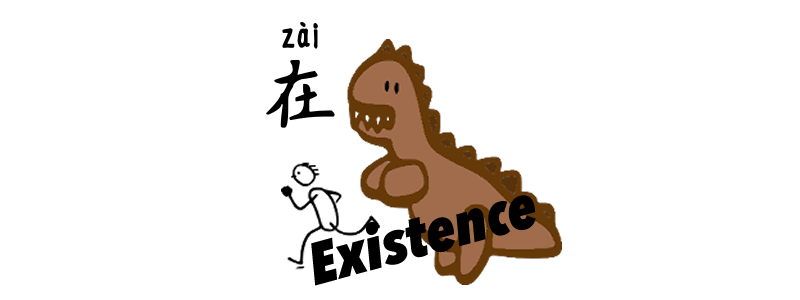Coffee Selections Espresso shots義式濃縮义式浓缩咖啡Yì shì nóngsuō kāfēi Americano美式咖啡Měishì kāfēi Cold brew coffee冷萃咖啡Lěng cuì kāfēi Café Latte拿鐵铁 NátiěExcept Taiwan Starbucks…. We call it 拿堤(Nátí) Mocha摩卡 Mókǎ Flat White澳白 àobái Starbucks: 馥芮白 (Fù ruì bái) Caramel Macchiato焦糖瑪玛奇朵Jiāo táng mǎ qí duǒ Frappuccino星冰樂乐Xīng bīng lè Affogato阿芙佳朵Ā fú jiā duǒ Size Normal coffee shop Small 12 oz. 360ml 小杯…
Author: tiffany
Beef and Steak in Chinese
Let’s talk about the delicious food beef and steak in Chinese. Steak is not Chinese food, but hotpot is! If you have a chance to eat hotpot here, you will see all the different choices you get in selecting beef. Here I am going to introduce you 10 different cuts of beef in Chinese. Cuts…
Chicken Parts and Chicken Dishes
The chicken is a very interesting animal in Chinese culture. The rooster is also regarded as a symbol of “good fortune,” because the word for chicken in Chinese, jī, has a similar pronunciation to the word meaning “auspicious.” For this reason, in some places in Eastern China’s Shandong Province, hens are used as part of wedding…
Chinese Equative Verbs
Grammar Point: Equative verbs connect two equal nouns or nominal expressions, such as “I am a teacher” or “He is John.” The three most common equative verbs in Chinese are 是 shì, 叫 jiào, and 姓 xìng. If you want to negate an equative verb, you should always use 不 bú. 是 shì Is, am,…
過/过 guò Grammar
Grammar Point:The particle 過过 guò is used to talk about something you have or haven’t experienced in the past. It always goes right after the verb. Structure S + V + 過过 guò + O 我wǒ去qù過guò中國Zhōngguó我wǒ去qù过guò中国ZhōngguóI have been to China. 你nǐ看kàn過guò這zhè部bù電影diànyǐng嗎ma? 你nǐ看kàn过guò这zhè部bù电影diànyǐng吗ma? Have you seen this movie before? 我wǒ見jiàn過guò他tā我wǒ见jiàn过guò他tāI have met him before. 我wǒ說shuō過guò嗎ma??我wǒ说shuō过guò吗ma??Have I said that before?…
Advanced Comparisons 2
Grammar Point:As you may already know, comparisons in Chinese are typically expressed using 比 bǐ. However, in this article, we’ll explore how to express preferences in Chinese—similar to saying “would rather… than…” in English. Additionally, we’ll introduce three more formal ways to construct comparison sentences in Chinese. Structure – Showing Preference 與与其 + Option A,(S) +…
“Even If” in Chinese 4 – 就算 jiùsuàn
Grammar Point:To express “even if” in Chinese, we need to use 就算 jiùsuàn or 就是 jiùshì and usually followed by the second clause 也 yě. In this pattern, the first clause is a supposition, which is then struck down as impossible by the statement’s second clause. Structure 就算 + ···,也 + ··· It is an…
Existence in a place in Chinese
Grammar Point:Chinese indicates the existence of something in a particular place by adding the verb 在 zài. In this function, 在 zài can be translated as ‘be in’ or ‘be at’ in English. Structure S + 在 zài + location 我wǒ在zài家jiā我wǒ在zài家jiāI am at home. 老師lǎoshī在zài美國měiguó老师lǎoshī在zài美国měiguóThe teacher is in the U.S. 圖書館túshūguǎn在zài學校xuéxiào的de3 樓lóu图书馆túshūguǎn在zài学校xuéxiào的de3 楼lóuThe library is…
Making Conclusion in Chinese
In this article, we are going to talk about some phases to make a good conclusion in Chinese. A clear conclusion can change a reader’s or listener’s mind when they reach the end of your speech. Especially in Chinese, we tend to save the most important information in our last sentence. Now let’s learn some…
東/东 V 西 V Grammar
The grammar of 東/东 V 西 V has 3 different meanings, depending on whether the order and two verbs you use are the same or not. And notice that all the verbs must be one-syllable verbs. Structure 東/东 + V + 西 + V This structure can be used if want to say you are…









